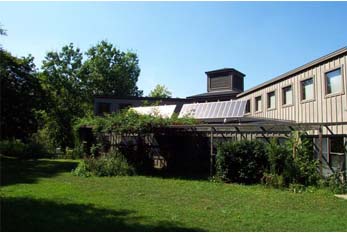Solar gets union support in Pennsylvania
 Pennsylvania’s solar market was booming—then it slumped almost overnight as the price for solar renewable energy credits (SRECS) dropped, because of the boom in installations. Now legislation winding its way through the state’s houses, may help fix that. And its got a lot of support from legislators on both sides of the isle, businesses and labor.
Pennsylvania’s solar market was booming—then it slumped almost overnight as the price for solar renewable energy credits (SRECS) dropped, because of the boom in installations. Now legislation winding its way through the state’s houses, may help fix that. And its got a lot of support from legislators on both sides of the isle, businesses and labor.
Most recently the International Brotherhood of Electrical Workers (IBEW) Local 98 showed up in support of HB 1580. “International Brotherhood of Electrical Workers support was very important,” said Peter Olmsted, director of Mid-Atlantic Policy for the Vote Solar Initiative. The organization now includes pennsylvania solar installer training in all of their apprenticeship and training programs.
“Essentially what HB 1580 is is an acceleration in Pennsylvania’s solar goals to meet the renewable portfolio standard,” Olmsted said. When the state introduced its renewable program it set lower solar targets in the early years, thinking that it would take some time for people and installers to move into the space. “They had annual targets through 2021. The early years were quite modest because it wasn’t anticipated that it would take off as fast as it did.”
That didn’t happen. “What they’ve set forth, the industry has developed very rapidly,” said Olmsted. The state planned to have roughly 800 megawatts of solar installed by 2021, with more coming online in later years as the markets matured.
This legislature would help fix the issue, by allowing stabilizing the amount of solar installed on an annual basis rather than increase the amount installed per year in outlying years. “By increasing the demand over the next few years it will help stabilize SREC prices and make it viable,” Olmsted said. That means those companies that built up their employment, could retain their employment while the price of solar continues to fall.
The bill was introduced by Rep. Chris Ross (R) and has wide support from fellow legislators in the state’s House. For the bill to have an impact this year it needs to be signed into law by June. It has 109 cosponsors in the House—over half of all House members, among them a solid mix of Democrats and Republicans, according to Olmsted. The legislation also has bi-partisan support in the state Senate where 19 members have signed on to cosponsor it.
Image courtesy of NREL



